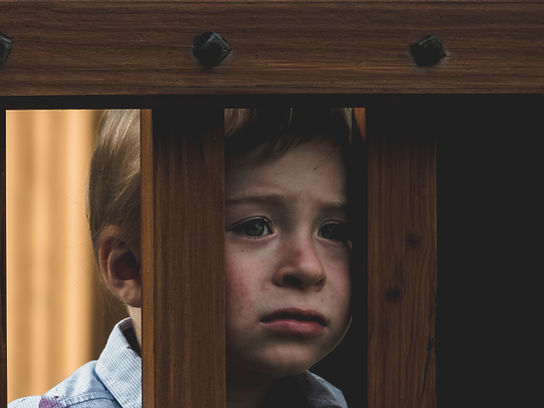
Behavioral Therapy for Children in Los Angeles, Riverside Counties.
How do I know When I Need to Ask For Professional help?
Parents should grow concerned when children exhibit certain behavior problems that are outside the realm of normal misbehavior. Some warning signs that may indicate more serious behavior problems include:
-
Difficulty managing emotional outbursts – Children who can’t control their anger, frustration, or disappointment in socially and age-appropriate means may have a more serious problem. Although it is normal for preschoolers to have occasional temper tantrums, older children should have better control over their emotions.
-
Difficulty managing impulses - Impulse control should develop slowly over time. As a child grows older, it should become easier to manage impulses. Children who struggle to refrain from using physical aggression and children who can’t gain control over their verbal impulses may have a more serious behavior problem.
-
Behavior that does not respond to discipline – It’s normal for kids to repeat misbehavior from time to time to see if a parent will follow through with discipline, but it’s not normal for kids to continue to misbehave even when appropriate disciplinary action is taken.
-
Behavior that interferes with school – If your child’s behavior causes him to fall behind academically, it’s a sign of a more serious problem.
-
Behavior that interferes with social interaction – It’s normal for kids to have spats with peers, but if your child’s behavior interferes with his ability to maintain friendships, it’s likely a problem. Children should be able to maintain age-appropriate behavior in social settings as well, such as the grocery store.
-
Self-injury or talk about suicide – Any child who bangs his head, burns himself or cuts himself should be evaluated by a mental health professional. It’s also important to have a child evaluated by a professional if there is any talk about suicide.
-
Sexualized behaviors that are not developmentally appropriate - Parents who are concerned about sexualized behavior problems should research the difference between normal and abnormal sexual development. Sexual behavior should never include any coercive behavior.

Can Therapy Help My Child?
Parents are always trying to do what’s best for their child’s physical and mental health. Apart from doing your best to help them eat the right foods, participate in productive physical activities, and have healthy relationships with family members and friends, sometimes children do need additional professional help.
At TCCSC, we are a non-profit organization that cares deeply about every child’s health. We have served thousands of young children with therapeutic behavioral services and we know that our programs can help your child make positive change and thrive in life.
How Does Therapy Work?
You might be wondering what the process is for signing your child up for our child therapy services. Here is our three-step process to get your child the therapy they need:
1. Understand the situation and needs of your child
Our first step is to identify the problem and get to the real root of the problem (where it came from). We make sure we understand both the parent and the child’s view of the problem so that we can develop diagnostic impressions and set realistic goals. The biggest key to this process is developing trust. You and your child need to feel safe and comfortable with the therapy taking place. We promise to make every environment one of confident self-expression, peace, and openness.
2. Empower positive habit-changing
Secondly, we’ll help your child apply meaningful and effective change strategies. This process will begin with developmental psychoeducation for both the parents and the children. After proper education has been taught, we focus on evolving negative habits into productive and positive habits by applying techniques related to problem-solving, coping skills, adaptive expression of emotion, self-compassion, and non-judgemental awareness of self and others.
3. Create a plan for lasting improvement
What good is therapy if all progress is lost after the end of the session? Our aim with our child therapy services is always to promote lasting change and positive habits of coping with stress, social anxiety, peer pressure, doubt, fear, and depression. We also help parents and children create lasting collaborative strategies to move forward in life and deal with these situations together. These strategies help promote continued growth and improvement and can help prevent relapse into old, negative habits and behaviors.
It’s normal to feel nervous about seeking help for your child’s behavior. If you are uncertain about whether or not behavioral therapy is right for your child, please give us a call to set up a free child therapy consultation to discuss your child’s unique situation and needs.
We offer free consultations to anyone who feels their child may need therapeutic help. Call now to schedule an appoinment (323)-586-7333

